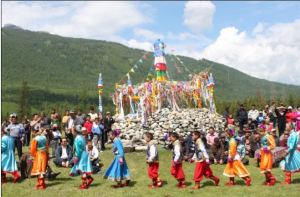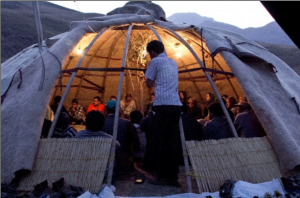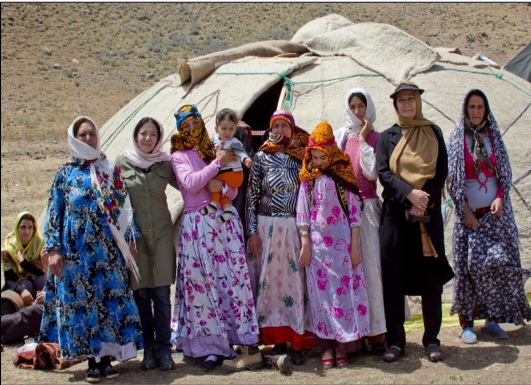First published on 07/29/2015, and last updated on 03/29/2018
By: Fereshteh Sabetian, ICCA Consortium Regional Coordinator for West Asia, and Fahimeh Seifi, Cenesta
UNICAMEL, with the help of Cenesta and the support of other organizations, held the National Conference of Camel Herding and ICCAs during 29th and 30th of July 2015 in the summer territory of the Takleh tribe of Shahsevan tribal confederacy (the original home of two-hump camels). Many government officials and experts from local, provincial and national levels, along with indigenous nomads and camel herders from all over Iran, participated in this two-day conference. The meeting was held in Alacheeq, the traditional settlement of Shahsevan nomads. The main topics of the event were:
- camels and conservation of natural resources;
- sustainable livelihoods and employment with regard to camel breeding;
- camel herding ICCAs in Iran;
- opportunities, threats and challenges in legal work and policy making.
Dr Ilse Köhler Rollefson was present from the LPP (League for Pastoral People and Endogenous Livestock Development) which has long-standing experience with the indigenous camel keepers of Rajasthan, north-west India.

The Conference was opened by Mr Atef Nasiri, Governor of Ardebil province, Dr Taghi Farvar, President of the ICCA Consortium and Dr Haji Zadeh, Head of ICHTO (Iran’s Cultural Heritage, Handicrafts and Tourism Organization) in Ardebil. Representatives of NSCS (National Scientific Camel Society), UNINOMAD (Union of Pastoralist Peoples), National Animal Breeding Centre and Promotion of Animal Products, Mellat Foundation, ONPI (Organization of Nomadic Peoples of Iran), Agriculture Jihad, the governmental FRWO (Forest, Rangeland and Watershed Department) and other NGOs were among the participants.
This interactive seminar generated conversations among nomadic camel herders and the authorities and experts in the fields of scientific studies, legal challenges, and economic opportunities. Representatives from UNICAMEL explained their traditional knowledge and the importance of camels in nature conservation in desert and semi-desert areas. The genetic diversity of camel breeds was discussed, and the indigenous camel herders expressed their concern about unregulated importation of foreign breeds of camel by government authorities and the private sector. They also stressed that camels are herd animals, which should not be kept in captivity but allowed to move and graze freely… which would best be done in well governed and managed ICCAs!

The conference produced a number of suggestions and plans to establish camel herding NGOs to help prevent the extinction of local breeds, strengthen the nomadic social structure, as well as methods to improve participatory decision-making and management in order to safeguard camels– the true heritage of the deserts. The provincial authorities agreed to provide facilities for research and conservation, and stated that the importation of camels should be subject to certificates from NSCS and UNICAMEL.
 Outside of the meetings, the nomads of the Takleh tribe held a very pleasant ceremony where everyone contributed to discussions on poetry and oral traditions related to camels and caravans. Traditional songs filled the air.
Outside of the meetings, the nomads of the Takleh tribe held a very pleasant ceremony where everyone contributed to discussions on poetry and oral traditions related to camels and caravans. Traditional songs filled the air.
If you read Persian, please find more information in this article.
